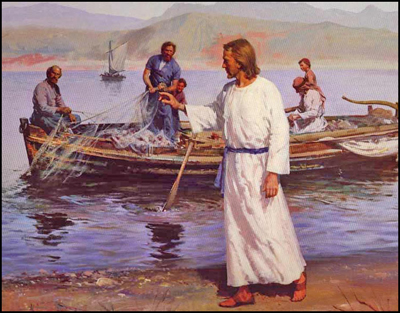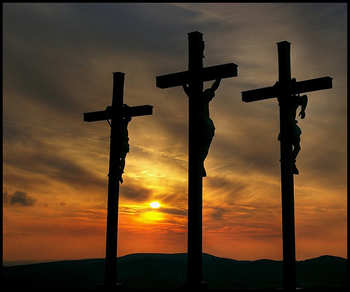 There’s a legendary story about the pipe that Moses allegedly played as a shepherd that was used to gather his father-in-law Jethro’s sheep on the hills of Midian. Over the years, the pipe slowly became a relic revered among the people who agreed that its simple structure was too plain, causing them to overlay it in gold. Once done, the pipe was highly respected but could no longer serve its purposes for the gold had made it mute and useless to its design.
There’s a legendary story about the pipe that Moses allegedly played as a shepherd that was used to gather his father-in-law Jethro’s sheep on the hills of Midian. Over the years, the pipe slowly became a relic revered among the people who agreed that its simple structure was too plain, causing them to overlay it in gold. Once done, the pipe was highly respected but could no longer serve its purposes for the gold had made it mute and useless to its design.
Sometimes I wonder if a similar thing is slowly happening to an old Galilean, the Son of Man, who is being buried under an avalanche of creeds, ceremonies, doctrines, denominational disagreements, mutual disapproval, and intolerance, thus leaving the simple beauty and power of the message of Christ mute to those who most need to hear it.
 Throughout the recorded ministry of Jesus, it’s clear that he didn’t seek out the intellectuals or the healthy-minded, he sought out the commoners and the sick. When Jesus came to Simon Peter, a mere fisherman, he called out to the water asking Peter to simply follow him. Years later, after the resurrection of Christ, when Jesus prophesied that Peter would likely die for his faith, he asked the Messiah what would happen to John, another disciple. His simple answer, yet again, was to follow him and not be tied up in what is ultimately out of his control.
Throughout the recorded ministry of Jesus, it’s clear that he didn’t seek out the intellectuals or the healthy-minded, he sought out the commoners and the sick. When Jesus came to Simon Peter, a mere fisherman, he called out to the water asking Peter to simply follow him. Years later, after the resurrection of Christ, when Jesus prophesied that Peter would likely die for his faith, he asked the Messiah what would happen to John, another disciple. His simple answer, yet again, was to follow him and not be tied up in what is ultimately out of his control.
That once simple call has now been muddled up in politics, greed, elaborate ceremonies and rituals. We bog each new convert down with rules and regulations where, unfortunately, the sweet call of Christ can no longer be heard over the noisy obligations of tradition. We keep the convert so busy that he/she hardly has time to reflect on the love that binds the spiritual relationship. Within just couple of years, the pipe no longer plays; it looks good from the outside but it no longer serves its purpose, dying on the inside.
In the duality of the gospel (the simple message that becomes too difficult to practice) we give up loving God and our neighbor, no longer forgiving them their sins as we are forgiven. Instead we “rise” to oppose homosexuality, evolution, religious freedom; fight against whomever does not align with our patriotic duties, and embrace celebrity preachers, get-rich-quick ministries, denominational loyalty, dogmas, and man-made doctrines. I’m generalizing here, of course, but these are the things that Christians are known for as if we are a body of uniform individuals and anyone who wishes to join our little club must be brainwashed to believe as we believe.
 But I don’t believe it. It doesn’t come down to whether or not the individual believes in the Trinity, the Virgin Birth, or any other theological improbabilities. What matters is that we recognize the moral example of Christ in that the greatest emotion is love and the greatest manifestation of love is self-sacrifice leaving he who demonstrates love through self-sacrifice as the exemplar for the continuation of mankind.
But I don’t believe it. It doesn’t come down to whether or not the individual believes in the Trinity, the Virgin Birth, or any other theological improbabilities. What matters is that we recognize the moral example of Christ in that the greatest emotion is love and the greatest manifestation of love is self-sacrifice leaving he who demonstrates love through self-sacrifice as the exemplar for the continuation of mankind.
Throughout the history of religion, we see this only in Christ. And his message, for those ready to hear it, is “follow me,” no matter the effect of whatever cause, all is forgiven in Christ and no matter the intellectual difficulties that come with accepting a religious mindset, all he asks is that we know and love his message of forgiveness and love.
In my brief years of becoming Christian I’ve come to understand that God adapts himself to the psychology of the individual soul and I have learned to be cautious in my judgment of how people are brought into His kingdom. Some people might say that what I present here is heresy or that I’m simply diluting the gospel message. But when I look at who Jesus was born among, who he called and lived with during his ministry, and the two thieves he died between I can’t help but believe that the poor in spirit will inherit the kingdom of God.


